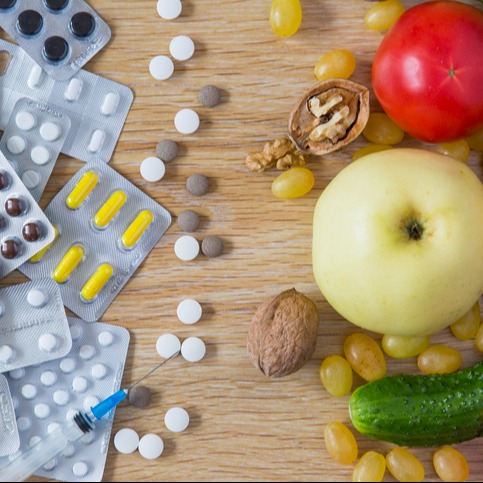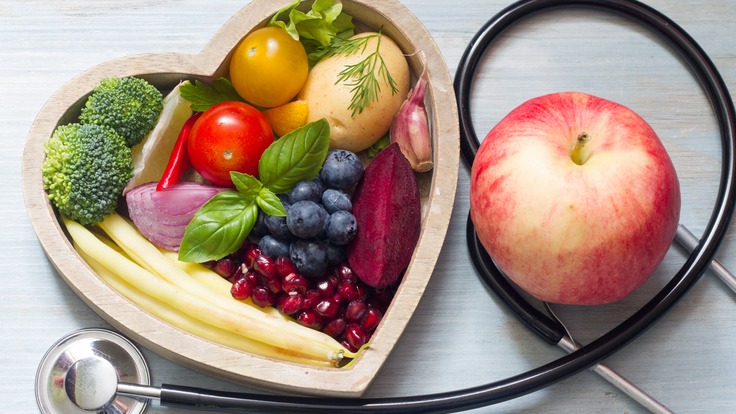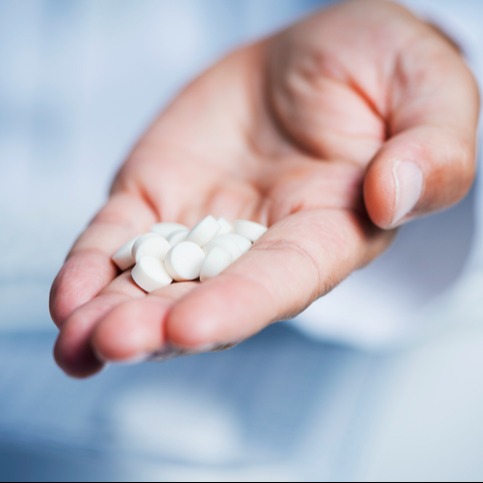
When taking Eliquis, it is essential to be mindful of the foods we consume, as they can potentially interact with the medication and impact its effectiveness. While some foods may seem harmless, they can have significant implications for those on Eliquis. From grapefruit to coffee, certain dietary choices may warrant caution. Additionally, saturated fats and fried foods may contribute to the development of plaque buildup, posing potential risks for individuals with heart disease. To ensure optimal results and minimize the side effects of Eliquis, it is crucial to understand which foods to avoid and maintain a balanced and nutritious diet. But what exactly are these foods? Stay tuned as we delve into the specifics, uncovering the dietary guidelines to help navigate the journey of taking Eliquis.
In medication management, Eliquis users must be aware of potential food and supplement interactions that can compromise their treatment. While Eliquis plays a vital role in managing heart conditions, certain foods can impact its effectiveness, and the combination of supplements can pose risks to one's health. As we delve into the discussion on dangerous food and supplement interactions with Eliquis, you will discover the unexpected culprits that can hinder the medication's potency and increase the risk of adverse effects. This article will show how seemingly innocent dietary choices can have significant consequences, from commonly consumed fruits to everyday spices. Stay tuned to uncover the hidden dangers that Eliquis users need to be aware of and learn how to take proactive measures to safeguard their well-being.
Key Takeaways
Grapefruit and grapefruit juice can interfere with the metabolism of Eliquis, leading to increased levels of the medication in the bloodstream.
Excessive caffeine consumption may not be helpful for individuals with heart disease.
Certain herbs and spices, like ginger and turmeric, may promote blood clotting and could interfere with the effectiveness of Eliquis.
Patients should follow a healthy, varied, and balanced diet while on Eliquis, avoiding saturated fats and fried foods that may contribute to plaque buildup.
Foods to Avoid While Taking Eliquis for Blood Clots
While taking Eliquis (apixaban) to prevent blood clots, it is important to be aware of certain foods that may interact with the medication or have potential side effects. Here is a list of foods to avoid or consume in moderation while taking Eliquis:
1. Grapefruit and grapefruit juice: Grapefruit can interfere with the metabolism of Eliquis, increasing its blood levels and potentially enhancing its effects. It is best to avoid grapefruit and grapefruit juice altogether.
2. Green leafy vegetables: While it is important to maintain a healthy diet, certain green leafy vegetables such as spinach, kale, and broccoli are high in vitamin K. Vitamin K can counteract the effects of Eliquis, which is an anticoagulant. Consuming these other leafy green vegetables in moderation and maintaining a consistent intake to avoid sudden changes in vitamin K levels is advisable.
3. Alcohol: Drinking alcohol in excess can increase the risk of excessive bleeding while taking Eliquis. It is recommended to limit alcohol consumption or avoid it altogether.
4. Certain herbal supplements: Some herbal supplements, such as ginkgo biloba, garlic, ginger, and St. John's wort, can increase the risk of bleeding or interact with Eliquis. Consult with your healthcare provider before taking any herbal supplements.
5. Nonsteroidal anti-inflammatory drugs (NSAIDs): NSAIDs like ibuprofen and aspirin can increase the risk of bleeding when combined with Eliquis. Consult with your doctor before taking any over-the-counter pain medications.
6. Fish oil and omega-3 supplements: While fish oil and omega-3 supplements can have many health benefits, they also have blood-thinning properties. Combining them with Eliquis may increase the risk of bleeding. Consult with your healthcare provider before taking any supplements.
When taking Eliquis, it is essential for patients to be mindful of certain foods that may interact with the medication and potentially impact its effectiveness. While no specific foods need to be completely avoided while on Eliquis, there are some important considerations to keep in mind.
One food to be cautious of is grapefruit. Grapefruit and grapefruit juice can interfere with the metabolism of Eliquis, leading to increased levels of the medication in the bloodstream. This, in turn, can heighten the risk of side effects and potentially cause interactions with other medications.
Additionally, patients with cardiovascular issues should limit their caffeine intake. While there is no direct interaction between Eliquis and coffee, excessive caffeine consumption may not be beneficial for individuals with heart disease.
Furthermore, it is important to be cautious with other foods that may interact with Eliquis. For example, cranberry juice has been suggested to potentially impact the medication's effectiveness. Discussing these potential interactions with a healthcare professional to determine the best course of action is recommended.
How Eliquis Works: Understanding Eliquis and its Effects
Understanding how Eliquis works and its effects is crucial for grasping its role in preventing blood clots and potential dietary interactions. Eliquis, or apixaban, operates by inhibiting clotting factor Xa, responsible for clot formation. By doing so, Eliquis prevents clot formation in blood vessels, thus reducing the risk of stroke and other clot-related complications.
Notably, Eliquis differs from other anticoagulants like warfarin in its lack of interaction with vitamin K-rich foods. This means patients on Eliquis need not restrict their intake of vitamin K-rich foods such as leafy greens, broccoli, and Brussels sprouts.
It's imperative for healthcare providers to educate patients about Eliquis, its benefits, and potential risks, including dietary considerations. Patients should maintain a healthy, diverse diet while on Eliquis. Seeking personalized dietary advice from healthcare professionals is recommended to ensure optimal management.
Interactions Between Eliquis and Other Substances
When using Eliquis, it's essential to understand its potential interactions with other substances, including spices, herbal supplements, or vitamin supplements, which should be avoided. Some herbs and spices, such as ginger and turmeric, may enhance blood clotting, potentially impacting the effectiveness of Eliquis. Consulting a healthcare professional before initiating any new supplements or making significant dietary changes is imperative to ensure the safe and appropriate use of Eliquis.
Spices or Supplements that Should be Avoided While Taking Eliquis
To ensure the safe and effective use of Eliquis, it's crucial to be mindful of potential interactions between the medication and certain spices or supplements. While using Eliquis, it's advisable to steer clear of spices and supplements known to affect blood clotting or interact with the medication. Examples of such spices and supplements include ginger, Ginkgo Biloba, turmeric, white willow, and St. John's Wort. These substances have the potential to enhance blood clotting, posing risks for individuals taking Eliquis. Consulting a healthcare professional about these spices and supplements while using Eliquis is essential for optimal medical care. Adhering to these guidelines will help uphold Eliquis' effectiveness and safety in managing your medical condition.

Food Interactions With Eliquis
When using Eliquis, it's essential to consider potential food interactions that may affect the medication's effectiveness and safety. Grapefruit is one example of a food that can negatively impact Eliquis. Studies have shown that grapefruit can elevate the levels of active ingredients in the bloodstream, altering the medication's potency and heightening the risk of side effects. Moreover, heart disease patients taking Eliquis should be cautious about their caffeine intake, as it may have specific daily limits. Additionally, cranberries and cranberry juice may be advisable to avoid.
Furthermore, diets rich in saturated fats can elevate the risk of arterial plaque buildup, increasing the likelihood of stroke or heart attack. Therefore, it's advisable to reduce or eliminate foods such as pork, beef, lamb, skin-on poultry, cream, lard, butter, ice cream, cheese, coconut, vegetable oils, and fried foods while using Eliquis. Instead, maintaining a healthy, diverse, and balanced diet devoid of high-fat foods is recommended. Such a diet should include fiber-rich foods, fruits and vegetables, whole grains, and lean protein sources.
Consulting with a doctor or nutritionist to determine the most suitable diet for your circumstances is always best. Additionally, tracking your mood and observing how dietary adjustments affect you can support long-term adherence to a healthier diet.
Recommended Diet While Taking Eliquis
A healthy, varied, and balanced diet is recommended for patients taking Eliquis to manage their heart health. While there are no specific foods that patients taking Eliquis must include, adopting a nutritious diet can significantly support overall cardiovascular well-being. A heart-healthy diet typically includes fibrous foods like fruits, vegetables, and whole grains, which play a crucial role in regulating cholesterol levels and promoting healthy blood flow. Lean protein sources such as fish and skinless poultry can provide essential nutrients without adding excessive saturated fats.
Consulting with a healthcare professional or nutritionist is advisable to determine the best diet for individual circumstances and medical conditions. Additionally, tracking one's mood and observing how dietary changes affect them can facilitate long-term adherence to a healthier diet.
Supplement Interactions With Eliquis
Supplement interactions with Eliquis require careful consideration, as certain supplements can alter how the anticoagulant medication interacts with the body. While vitamin K does not exhibit the same interaction with Eliquis as with other anticoagulants, other supplements can heighten the risk of bleeding when combined with Eliquis. Herbs and spices like ginkgo biloba, turmeric, and ginger can induce this effect, as can melatonin, which might also prolong the blood clotting time. It is crucial to inform your doctor about any supplements you are taking before starting Eliquis, as adjustments may be necessary. By proactively discussing supplement use with your healthcare professional, you can ensure the safest and most effective use of Eliquis alongside over-the-counter medications.
Other Interactions and Considerations
To ensure the safe and effective use of Eliquis, it's vital to consider potential food-drug interactions and factors that may impact its efficacy and potential side effects. Apart from food and supplement interactions, other medications and substances can also interact with Eliquis. Severe interactions may arise with other blood thinners, specific antidepressants, Rifampin, Rifabutin, and anti-seizure medications. Nonsteroidal anti-inflammatory drugs (NSAIDs) such as ibuprofen, naproxen, and diclofenac can also interact with Eliquis.
Furthermore, it's crucial to abstain from alcohol consumption, as it possesses blood-thinning properties and heightens the risk of severe blood loss and hemorrhaging. If you suspect you have ingested something that may interact with Eliquis, it's imperative to seek advice from your doctor promptly. Additionally, medication nonadherence can be equally perilous as interactions with food or other drugs.
Medication Non-Adherence and Risks
Considering the potential risks associated with other drug interactions and factors that can affect the efficacy and safety of Eliquis, it is crucial to address the issue of prescription medication and nonadherence. Medication non-adherence refers to the failure to take medications as prescribed by a healthcare provider. Nonadherence can have serious consequences, including an increased risk of blood clots, stroke, or other cardiac events. It is important for patients taking Eliquis to understand the importance of adhering to their prescribed medication regimen. This includes taking the medication at the recommended times and doses and avoiding any potential interactions with other medications or substances. Non-adherence can be unintentional, due to forgetfulness or confusion, or intentional, due to concerns about side effects or costs. Healthcare providers play a crucial role in educating patients about the importance of medication adherence and addressing any concerns or barriers that may contribute to non-adherence.
Frequently Asked Questions
Can I Drink Alcohol While Taking Eliquis?
While taking Eliquis, it is generally advisable to avoid consuming alcohol. Alcohol can have blood clot re-thinning properties and increase the risk of severe bleeding and hemorrhage. It is best to consult with your doctor for specific guidance.
Are There Any Specific Fruits or Vegetables I Should Avoid While on Eliquis?
No specific fruits or vegetables need to be avoided while taking Eliquis. However, a healthy, varied, balanced diet is recommended to manage heart health. Consult with a healthcare professional for personalized dietary advice.
Can I Take Over-The-Counter Pain Medications Like Ibuprofen or Acetaminophen While on Eliquis?
Taking over-the-counter pain medications like ibuprofen or acetaminophen while on Eliquis can increase the risk of bleeding. It is important to consult your doctor before taking any medication to ensure it does not interact with Eliquis.
Are There Any Specific Herbs or Spices I Should Avoid While on Eliquis?
Some herbs and spices, such as ginkgo biloba, turmeric, and ginger, may increase the risk of bleeding when taken with Eliquis. It is important to inform your doctor about any supplements or other prescription medications, to determine if adjustments are needed.
Can I Take Vitamins and Supplements While on Eliquis?
While there is limited evidence of vitamin K interaction with Eliquis, supplements like ginkgo biloba, turmeric, ginger, and melatonin may increase the risk of bleeding. Consult your doctor before starting any supplements to ensure safe co-administration with Eliquis.
Rely on PlanetDrugsDirect.com to Buy Online Eliquis (Apixaban) for Sale
As a trusted prescription referral service, we offer important benefits whenever you order online. Each of our partner pharmacies and/or government-approved dispensaries is committed to providing the best experience possible of any online prescription referral service on the internet. We offer:
Low prices
Quick turn-around times
Generic and brand-name medications
Unparalleled customer service
 Medically reviewed by
Medically reviewed by 





